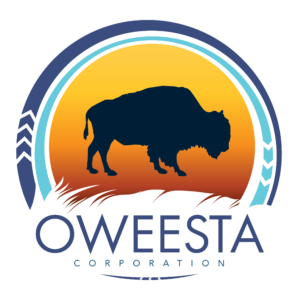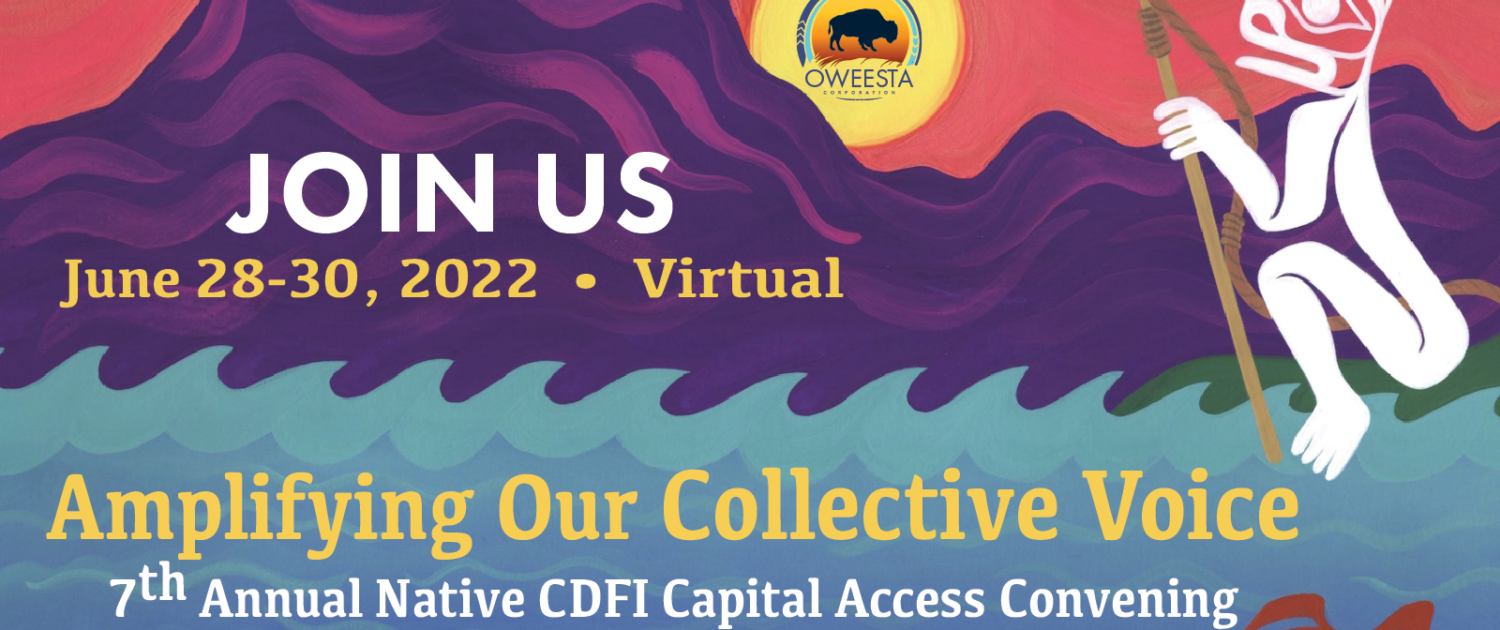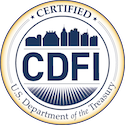Amplifying Our Collective Voice
7th Annual Native CDFI Capital Access Convening
Oweesta’s annual Native CDFI Capital Access Convening is a national event that brings together Native CDFIs, Native American Financial Institutions, partners, practitioners, funders, investors, and bankers for training and networking opportunities. Now, more than ever, we must rely on the power of community and lean on the networks and connections we have forged over the past two decades–which is why the theme for 2021’s Capital Access Convening is ‘Rooted in Community.’
Over three days, the conference builds organizational capacity to access capital and markets for Native CDFIs and NAFIs and sparks strategic discussions around targeting capital to Native communities for potential funders, investors, and key partners. There are many opportunities to connect and invest in growing economies in Indian Country.
Relive this great multi-day event by accessing recordings and presentations below.
Session Recaps
Revisit the Convening by viewing the recordings or going through the presentations shared by session.
Day 1 ~ June 28
11:00 am-12:00 pm MT - Welcome and Opening Plenary
We will commence the 7th Annual Native CDFI Capital Access Convening with an opening prayer, land acknowledgment, and remarks from Oweesta’s President and CEO, Chrystel Cornelius, as well as welcome remarks from the Oweesta Corporation Board, and Keynote Speaker, Carol Anne Hilton, the Founder & CEO of The Indigenomics Institute.
Opening Prayer led by Marshall LaRocque (Turtle Mountain Band of Chippewa), Ojibwe Language Instructor/Developer, Turtle Mountain Community College.
Keynote Speaker Carol Anne Hilton, the Founder & CEO of The Indigenomics Institute.
12:00 pm-1:00 pm MT - A Community Reinvestment Act Discussion: Banks Investing in Indian Country
Please join Oweesta Corporation for a panel discussion focused on how to capitalize on the upcoming updates to the Community Reinvestment Act. During this panel discussion with bank representatives, hear how to create banking partnerships and how banks are rethinking their CRA programs in light of the proposed updates. Leave this conversation with an understanding of how Native CDFIs can take advantage of these new opportunities to better support their operating and capital needs.
Speakers:
- Chrystel Cornelius – Oweesta Corporation
- Kathy Holmes – Office of the Comptroller of the Currency – U.S. Department of Treasury
- Steve Barbier – NeighborWorks America
- Michou Kokodoko – Federal Reserve Bank of Minneapolis
- Brandon Lewis – Flagstar Bank
Moderated by:
- Krystal Langholz – Oweesta Corporation
Resources share by the speakers:
- Board of Governors of the Federal Reserve System:
-
-
- Submit a comment using the link on: https://www.federalreserve.gov/consumerscommunities/community-reinvestment-act-proposed-rulemaking.htm
- Comments can also be emailed, faxed, or mailed.
-
- OCC:
-
-
- Submit a comment here: https://regulations.gov/. Enter “Docket ID OCC-2022-0002” in the search box and click “Search.”
- Comments can also be mailed or hand-delivered.
-
- FDIC:
-
-
- Submit a comment here: http://www.fdic.gov/regulations/laws/federal/propose.html. Include the RIN 3064-AF81 on the subject line of the message.
- Comments can also be emailed, mailed, or hand-delivered.
-
https://ncrc.org/bank-branch-locator
https://www.minneapolisfed.org/indiancountry/resources/reservation-profiles
- How to look up financial institutions currently operating in a specific market?
- Data Browser—provides loan level data by institution service area, but doesn’t include institution name: https://ffiec.cfpb.gov/data-browser/data/2020?category=states
- https://ffiec.cfpb.gov/data-browser/maps/2020?geography=state
- https://www.lei-lookup.com/ – can be used to lookup the LEI on the HMDA export (Legal Entity Identifier)
- Explanation of fields: https://ffiec.cfpb.gov/documentation/2018/lar-data-fields/
- Aggregate Report by Loan Type/size/count (Purchases/Originations for small business, small farm, and community development lending activity)—overall or breakdown by financial institution: https://www.ffiec.gov/craadweb/aggregate.aspx
- Disclosure Report by Institution/Loan Type: https://www.ffiec.gov/craadweb/DisRptMain.aspx
- Flat Files–combined flat files represent all of the CRA Aggregate and Disclosure report data: https://www.ffiec.gov/cra/craflatfiles.htm
- National Information Center—allows you to search for financial institutions in a specific City/State: https://www.ffiec.gov/NPW
- Data Browser—provides loan level data by institution service area, but doesn’t include institution name: https://ffiec.cfpb.gov/data-browser/data/2020?category=states
- Where to find their last CRA report and ratings
- Ratings search by headquarters location/institution/rating, etc: https://www.ffiec.gov/craratings/default.aspx
- Ratings Database Download – https://www.ffiec.gov/craratings/Rtg_spec.html
- Reports – public file is either available on their website or something you have to request directly from the financial institution
- What types of projects they have funded in the past
- Bank’s CRA File available at the Institution or Online as well as the CRA Office
- Policy map: https://www.policymap.com/newmaps#/
- Investment Connection https://www.stlouisfed.org/community-development/cpi/investment-connection/training-videos
- CRA NPR– https://www.occ.treas.gov/news-issuances/news-releases/2022/nr-ia-2022-47a.pdf
- CRA NPR Fact Sheet– https://www.occ.treas.gov/news-issuances/news-releases/2022/nr-ia-2022-47b.pdf
- Project REACh | OCC– https://www.occ.gov/topics/consumers-and-communities/minority-outreach/project-reach.html
Fed Communities | FRB– https://fedcommunities.org/
Economic Inclusion | FDIC– https://www.fdic.gov/consumers/community/inclusion.html
Bank Partnerships with CDFIs and Benefits of CDFI Certification | OCC– https://www.occ.gov/publications-and-resources/publications/community-affairs/community-developments-fact-sheets/pub-fact-sheet-bank-partnerships-with-cdfis.pdf
1:30-3:00 pm MT - Implementing HEARTH & Developing Your HEARTH Lease
This session will highlight one tribe’s path to implementing the HEARTH Act in their community, its challenges and successes, and its development of a Hearth Lease and simple recording system. The session will provide tools for reviewing a tribal leasing law, a residential checklist, a sample HEARTH lease, and recording processes.
Learning Objectives:
- Developing your leasing team
- Developing a residential lease checklist
- Amending your standard lease to be consistent with your tribe’s leasing law
- Making sure your lease allows for assignment, subleasing, mortgaging without further tribal approval
Presenters:
- Sheila Herrera – Tiwa Lending Services
- Denise Zuni – Sheh Wheef Law Offices, P.C.
1:30 pm-3:00 pm MT - Advancing Impact Through Collectives
There are many benefits to partnering with other organizations and CDFIs and one of those is certainly understanding regional and collective impact. Data collected in this way can be more powerful in seeking funding, advancing policy efforts, and in marketing to communities among other benefits. Join us and our panel of representatives from regional coalitions, networks, and collectives.
Learning Objective:
- Come learn from coalition, collective, and network representatives on the results of their combined impact and data tracking efforts.
Presenters:
- Alyssa Camp – Sweet Grass Consulting, LLC
- Tawney Brunsch – Lakota Funds
- Amber Faist – Oregon Native American Chamber – ONAC
- Lakota Vogel – Four Bands Community Fund
1:30 pm-3:00 pm MT - Simplifying Risk Rating and Loan Loss Reserve
In this interactive session we will provide some tips and tricks for simplifying risk ratings and subsequent adequate loan loss reserve amounts. Hands-on activities will provide insight into setting appropriate risk ratings and the effect those ratings have on loan loss reserve amounts.
Learning Objective:
- Understand the correlation between risk rating and loan loss reserve amounts.
Presenters:
- Florence Ludka – Oweesta Corporation
- Jamie Olson – Oweesta Corporation
- Daniel Sharp – Oweesta Corporation
- Alexandra Shaughessy – Oweesta Corporation
- Mikeala Ludka – Oweesta Corporation
3:15 pm-4:15 pm MT - Closing Plenary: Increasing Capital Access Through Participation Lending
Join Oweesta Corporation in closing the day with a panel discussion around participation lending and how this strategy can increase or open the doors to capital access for Native CDFIs. During this discussion, Native CDFI practitioners will share what they’ve learned about creating successful participation loan partnerships through experience, and how they are using this style of lending as a valuable tool to strengthen their lending programs.
Speakers:
- Lakota Vogel – Four Bands Community Fund
- Joel Smith – Native American Bank
- Cindy Logsdon – Citizen Potawatomi CDC
- Fran Lutz – True Path Advisory Group
- Jeff Bowman – Bay Bank
Moderated by:
- Krystal Langholz – Oweesta Corporation
Day 2 ~ June 29
11:00 am-12:15 pm MT - Financing Resilient & Regenerative Native Communities: Building Blocks for NCDFIs & Investors
Tribal communities large and small, urban and rural, have continued to feel the cascading effects of the pandemic and climate change on top of existing shocks and stresses, even as innovative solutions, new financing tools, and traditional indigenous practices have expanded the way that we react and plan for the future. This session will explore such a set of solutions, tools, and practices through the lens of resilience and regeneration, specifically as it pertains to CDFIs, impact investors, and other lending and investing institutions. Join us as we delve into the practice of building equitable, holistic resilience through two leading-edge projects now being tested – the Resilience Impact Assessment from NDN Collective/NDN Fund and the Resilient Community Development Finance Initiative Lending Principles and Tool from Opportunity Finance Network and Precovery Labs. Beyond the building blocks for resilience finance through Native CDFIs, we will introduce the tools, funds, and screens now being used to “normalize resilience” across sectors and projects and discuss how partners and investors in CDFIs can take the next step in building resilience through a precovery mindset in Native communities.
Speakers:
- Stewart Sarkozy-Banoczy – Precovery Labs
- Kim Pate – NDN Collective, View the Presentation
- Tina Poole Johnson –
Carsey Center for Impact Finance, University of New Hampshire, View the Presentation
1:30 pm-3:00 pm MT - Learning Circle with Rural Development
Have you been wondering how you can improve your working relationship with USDA Rural Development? Join this facilitated discussion to engage with USDA Rural Development staff and your peers to learn about what’s been working and what challenges others have encountered along the way. Participants will leave the session with renewed confidence on how to build strong working relationships with USDA Rural Development and improve their ability to access the broad array of funding programs available to Native CDFIs.
Learning Objectives:
- Share what has worked well with your organization and USDA Rural Development.
- Share past challenges you’ve experienced when working with USDA Rural Development.
- Engage in an interactive discussion with USDA Rural Development staff about your current needs and related resources.
Presenters:
- Tedd Buelow – USDA Rural Development
- Melissa Sturdivant – USDA Rural Development
- Chris DeFreese – USDA Rural Development
- Ingrid Ripley – USDA Rural Development
- Mark Brodziski – USDA Rural Development
- Andria Hively – USDA Rural Development
1:30 pm-3:00 pm MT - HUD 184 Home Mortgages and CDFIs
Chickasaw Community Bank (formerly Bank2) is a Native American CDFI as well as a Bank. As a Tribe working with other tribes, we wish to share our experiences as well as some from CDFI customers who offer Home mortgages and some that chose not to offer home mortgages. This session will discuss the HUD 184 Mortgage loan program (and in general other loan programs) and provide some tools to aid in the decision-making process for your tribe. What is needed most —Business loans or home mortgages or both?
Discuss the purpose and ultimate goals: what are the demographics, how to work through the decision process, and the various options available to tribes to bring the HUD 184 mortgage program or other home mortgage programs to their reservation.
Consider:
- How many families a year?
- Homeowner income levels
- Homeownership repairs/maintenance
- Beyond the reservation
Discuss what resources are available to the tribe from other sources (funding, secondary market) or do you already have or need to have (staff, compliance, software)? Do you want to work with tribal members to put loan packages together or originate the loan or close and fund the loans? We will also briefly cover what is involved with land ownership – what type and what can be done to facilitate the assignment and/or mortgages.
This session is designed to review the options, discuss some of the requirements and welcome an open discussion on the needs and what can be done to facilitate from the tribal perspective. We will help you develop the questions for your tribe. You will need to determine the answers specific for your tribe and members to help you determine the path. Remember this is always evolving, the answers will change as you gain experience, knowledge, and growth along with the ever-changing demographics of your reservation or target area.
Presenter:
- Nancy Bainbridge – Chickasaw Community Bank (formerly Bank2)
1:30 pm-3:00 pm MT - Indigenous Human Resources
This session will equip Native CDFI practitioners with proven Indigenized human resources strategies developed by Indigenous leaders across NDN Collective, a national Indigenous-led nonprofit. NDN Collective has made a commitment to ensuring that our staff has benefits, training, leadership coaching, and networking opportunities that support our personal and professional growth and stability.
Kim Pate, who manages human resources at NDN Collective, will describe the strategies in detail, how they were developed and refined, how they reflect best practices in the broader human resources field while matching the needs of our Indigenous workforce, and the ways the strategies align with other key departments of the NDN Collective ecosystem.
Learning Objectives:
- Learn how to use an Indigenous approach in designing an effective Human Resources program
- Discover best practices and legal compliance to achieve results
- Learn about culturally-grounded leadership development
- Explore ways to confront lateral violence through traditional and spiritual techniques
Presenters:
- Kim Pate – NDN Collective
3:15 pm-4:15 pm MT - Closing Plenary - Accessing the Federal Home Loan Banks’ Community Investment Programs
Join us as we close the day with a panel discussion from Federal Home Loan Banks from across the country.
The Federal Home Loan Banks (FHLBanks) are 11 private, wholesale banks regionally based throughout the United States. Their mission is to provide reliable liquidity to member financial institutions in support of housing finance and community investment. Each FHLBank contributes 10% of its net income to support affordable housing development and down payment assistance grantmaking. Additionally, several of the FHLBanks operate voluntary programs focused on addressing special needs, such as home rehabilitation and small business lending. Through a panel discussion featuring staff from at least two FHLBanks, Native CDFIS will learn how they can leverage FHLBank community investment programs to meet the affordable housing, economic development, and small business needs of the communities they serve.
Through this session, participants will understand the following:
- The FHLBanks’ unique structure, purpose, and mission within the larger community development finance industry
- The community investment programs offered through the FHLBanks and how Native CDFIs can access them as a member and/or community partner
- The requirements to become a CDFI member and the benefits of membership
Presenters:
- Fern Orie – Oweesta Corporation
- Annie Kraft – Federal Home Loan Bank of Chicago
- Thomas Dapice – Federal Home Loan Bank of San Francisco
Day 3 ~ June 30
11:00 am-12:30 pm MT - Opening Plenary: Remarks, Small Business Awards, & Assessing Risk - A Native CDFI Perspective
Join us as we commence our final day of the convening with opening remarks from Administrator Isabella Casillas Guzman (U.S. Small Business Administration), announce our small business awards, and host a discussion, Assessing Risk – A Native CDFI Perspective.
Special Remarks by Administrator Isabella Casillas Guzman (U.S. Small Business Administration)
Native Small Business Awards winners announced. See the press release announcement here.
In Assessing Risk – A Native CDFI Perspective, we will share the results of our 2021 research to explore the topic of risk analysis and assessment. What metrics best predict risk and how are Native CDFIs unique in their assessment of risk? In 2021 thirteen Native CDFIs shared their loan level data with us so we could analyze this data across standard and unique risk metrics to better understand what risk looks like for business, home, and consumer lenders. We are excited to share these results publicly and hear the feedback from the larger industry on our findings and discuss next steps and opportunities.
Speakers:
- Lakota Vogel – Four Bands Community Fund
- Andrea Mader – Sweet Grass Consulting, LLC
- Kristen Stambach – Four Bands Community Fund
Moderator:
- Krystal Langholz – Oweesta Corporation
1:00 pm-2:30 pm MT - Tools and Resources from Enterprise Community Partners: Including Native Housing Developers Guide
Join this session to learn more about how Enterprise can help your organization or tribe with its next housing project! We also hope participants will share out housing-related updates, and barriers, and of course, ask plenty of questions. Enterprise’s Rural and Native American team have a number of programs and resources to support Native CDFIs in their housing work. These resources, grants, capital lines, and trainings will be covered in this session.
Native CDFIs are perhaps the best financial asset a housing developer has when working on tribal land. Whether a multifamily housing project is being developed by a TDHE, the tribe itself, or in partnership with another non-profit, the developer will need access to capital. Working through a development process can be long and arduous, but luckily Enterprise Community Partners has a new resource available in 2022 to help developers, and lenders like CDFIs, understand the multifamily housing development process from start to finish.
Developed by the years of experience on the Rural and Native American Programs team, the Native Housing Developers Guide (NHDG) was designed with Native communities in mind. In this session, Enterprisers Evelyn Immonen and Susan Anderson will walk through the NHDG guide for lenders, share case studies, and answer questions about Visioning, Pre-Development, Securing Funding, Design and Approvals, Construction, and Compliance.
While Native CDFIs do a lot more than just housing, we hope to convey that housing is a quality economic investment and that tax credits and other financing that have been historically difficult to access are available and achievable on tribal lands, with the right tools and resources.
Presenters:
- Evelyn Immonen – Enterprise Community Partners
1:00 pm-2:30 pm MT - Becoming a Mortgage Broker
This session will provide an overview of the best practices in launching a nonprofit mortgage brokerage. Topics covered include techniques to evaluate the organizational capacity, steps to become an NMLS licensed mortgage broker, identifying staffing needs, an overview of the loan process, identifying potential lending relationships, and the financial benefits of a successful mortgage brokerage.
The session will provide participants with a broad background on key topics and a knowledge of additional information sources to investigate mortgage brokerage opportunities further. The session will also introduce participants to starting and managing a successful mortgage brokerage. An interactive review of the steps needed to staff and run an NMLS licensed mortgage broker will provide an analysis of organizational readiness and possible timelines for deployment. Discussion of opportunities and roadblocks will lead to an understanding of potential lending abilities. Identifying potential lending relationships will provide a clear picture of mortgage lending opportunities in the communities served. A discussion of additional resources and assistance will be provided for future support.
The session will end with a period for Questions & Answers with clear next steps for success. The session will be a 90-minute mix of discussion, interactive learning exercises, and practical work, particularly information gathering and analysis with an emphasis on providing valuable information on which research and evaluation can be performed.
Presenter:
- Lupe Hernandez – Homeownership Council of America
- Gabe del Rio – Homeownership Council of America
- Jennifer Murphy – Homeownership Council of America
- Don Nash – Homeownership Council of America
1:00 pm-2:30 pm MT - Marketing Made Personal: Using Audience Personas in Your Marketing Strategy
During this session, you will learn how to identify and outline different marketing personas. Marketing personas are semi-fictional representations of your ideal customers meant to help you focus your business development strategies. This session will cover the purpose of developing personas, data, and research you could use, and we will collaboratively create personas. This session will be a hands-on, interactive workshop. Because of the collaborative nature of the session, registrations will be capped.
Learning Objectives:
- Learn the purpose of marketing personas for supporting your business
- Learn best practices in persona development
Presenters:
- Denisse Ruiz – Oweesta Corporation
1:00 pm-2:30 pm MT - Native CDFIs Adapting to Meet Consumer Needs
Credit Builders Alliance will faciliate a panel of Native CDFI’s that are part of the organization’s current small dollar consumer loan cohort to share their experiences with consumer lending.
They will share details about how their products have evolved over time, lay out the opportunities and challenges involved in consumer lending, and have a generative conversation about how we can collectively address consumer needs within Native communities in a safe, affordable, accessible way. (This session will build off the previous day’s session, Small Dollar Consumer Loans.)
Learning Objectives:
- Learn about the products and practices of Native CDFIs offering small dollar consumer loans
- Hear how these programs are adapting to conditions out of their control
- Understand gaps in the field and ways to address them
Presenters:
- Lisa Price – Wells Fargo
- Brooke Cain – Credit Builders Alliance
- Angie Main – Native American Community Development Corporation Financial Services
- Robin Danner – Homestead Community Development Corporation
2:45 pm-4:15 pm MT - Closing Plenary: Synergy - Showcasing the Work of NCDFI Coalitions & Networks, Closing Remarks
Join Oweesta Corporation in closing our 7th Annual Native CDFI Capital Access Convening with a panel discussion, Synergy: Showcasing the Work of NCDFI Coalitions & Networks on Statewide and Regional Native CDFI Networks, a conversation with Chrystel Cornelius and a special guest speaker, and closing remarks.
Drumming service by Grindstone Lake Singers (little Traverse Bay Band of Odawa Indians, Petoskey, Michigan). Singers: RJ Smith, Zhaawom Smith, and Netawn Kiogima
Synergy: Showcasing the Work of NCDFI Coalitions & Networks on Statewide and Regional Native CDFI Networks Presenters:
- Lakota Vogel – Four Bands Community Fund
- Amber Schulz-Oliver – Affiliated Tribes of Northwest Indians Economic Development Corporation
- Tawney Brunsch – Lakota Funds
- Becky Albert-Breed – First Nations Community Financial
Moderator:
- Fern Orie – Oweesta Corporation




